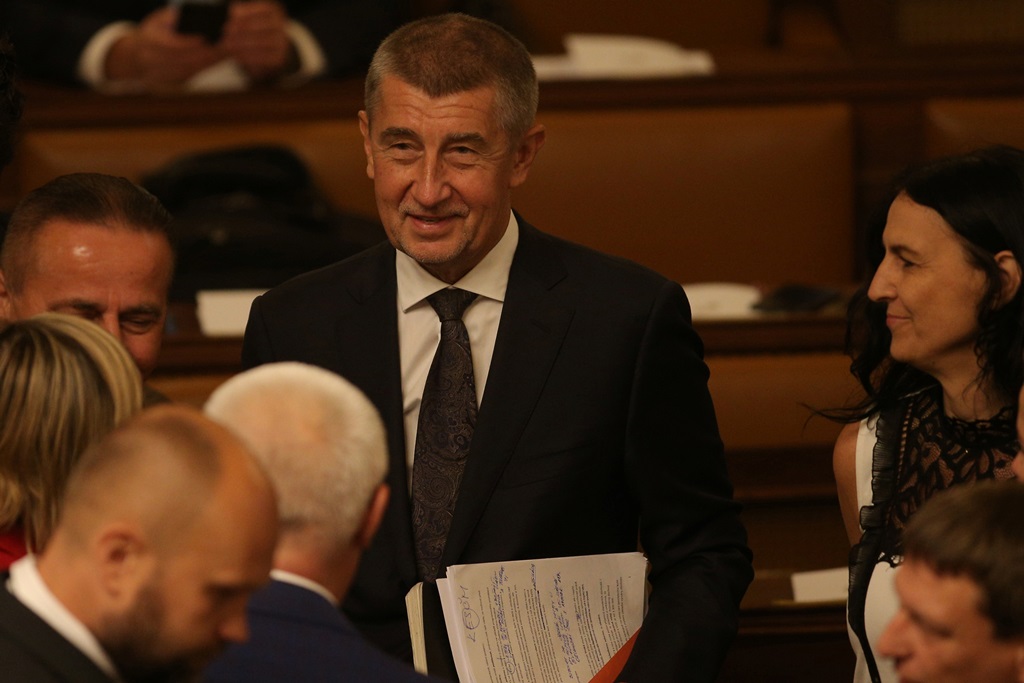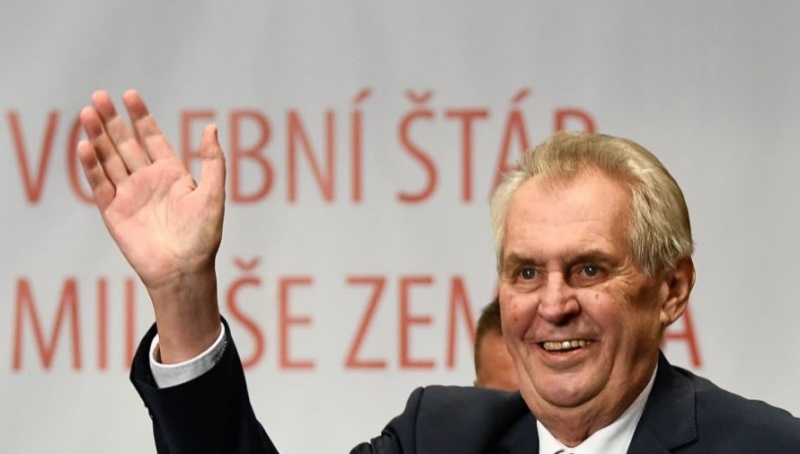New Government in the Czech Republic: Perspectives on Domestic and Foreign Policy

Tedious Coalition-Building
Despite the victory in the parliamentary elections in October last year, ANO has long been unable to form a government with parliament’s support. The reason for that was a political deadlock caused by the fragmentation of parliament and ANO’s limited coalition capacity. This is a consequence of a police investigation in connection with allegations that the party’s leader—Babiš—extorted EU subsidies and cooperated with the communist-era Czechoslovak security services. On 13 December 2017, Babiš’s first government composed of ANO members and non-parliamentary experts was sworn in. After failing to win a vote of confidence in the Chamber of Deputies in January, the dismissed government has continued to perform its duties.
The change on the Czech left contributed to the political breakthrough of the stalemate. In February, Jan Hamáček, regarded as an enthusiast of cooperation with ANO, became the new chairman of ČSSD. In internal voting—58.5% votes for and 40.2% against, but on poor turnout of 64.7%—ČSSD sided in favour of joining the government coalition. In the minority government sworn in on 27 June, Hamáček became the deputy prime minister and ČSSD received five ministries, including interior and foreign affairs. ANO indicated nine ministers, including justice and finance.
A Cabinet Supported by the Communists
The key to obtaining the vote of confidence was KSČM’s support. The coalition parties together have 93 votes in the 200-member Chamber of Deputies. KSČM, the fifth-largest political force in the lower chamber of parliament, guaranteed an additional 15 votes.
Although in the past parliament chose two presidents with the participation of KSČM—Václav Havel and Václav Klaus—the establishment of the ANO-ČSSD government with the communists’ support sets a precedent in the history of the Czech Re KSČM support was formalised by an agreement with Babiš’s party and includes consultation of Cabinet personnel changes. In turn, among the proposals by KSČM Chairman Vojtěch Filip are an increase in the minimum wage, taxation of compensation to churches for post-war confiscation of property, and withdrawal of the appointment of Miroslav Poche, a member of the European Parliament from ČSSD, to the post of foreign minister. Although the Social Democrats upheld his candidacy, he was rejected by President Zeman, which led to the temporary entrustment of this office to Hamáček.
The influence of KSČM on foreign policy is limited. This party, which opposes Czech membership in NATO, unsuccessfully demanded a reduction in the number of Czech soldiers serving abroad. Immediately after the communists’ demands, however, the Chamber of Deputies approved an increase in Czech involvement in the missions in Iraq, Afghanistan, Mali, and the Baltic States. With that, the government sent a signal to its NATO partners ahead of the Alliance’s Brussels summit that domestic policy will not affect its international obligations. In turn, in March, the communists, in calling for the abolition of sanctions imposed by the EU on Russia, had to content themselves only with criticism of Babiš’s decision to expel three Russian diplomats in solidarity with the UK after the attempted poisoning of Sergei Skripal and his daughter.
European Policy
Although ANO and ČSSD had already joined in the government coalition of 2014-2017, in European policy the new government neither fully follows Bohuslav Sobotka’s Cabinet from that period nor the ANO government from the first half of this year. Prime Minister Babiš emphasizes instead the role of the Member States in working out EU reform. This is evidenced by the content of Babiš’s second government programme, stressing the need to strengthen the European Council.
Babiš uses migration policy to emphasize the supremacy of national solutions to EU obligations. In the public debate, the Czech prime minister has even narrowed the discussed topics concerning future EU reform to migration. During the swearing-in of the new government, he first mentioned the fight against irregular entry. To a large extent, this position stems from public opinion. According to the May Eurobarometer results, only the citizens of Malta, Hungary, and Italy attach more weight to migration than the Czechs. Babiš’s rejection of the Italian government’s requests in mid-July to EU countries for the admission of 450 migrants who had sailed from Libya to Sicily, aimed at emphasizing the coherence of the Czech government’s message.
In the debate on EU reform, the Czech government continues to emphasize the principle of subsidiarity and proportionality and speaks in favour of the “less, but more effective” scenario (the fourth scenario in the European Commission’s white paper). This approach by Babiš is combined with the need to reduce spending on EU institutions. At the same time, the Czech Republic favours maintaining funds for cohesion policy, supports the mechanism of permanent structural cooperation (PESCO), and the creation of a European Public Prosecutor’s Office (EPPO). Babiš remains sceptical of Czech accession to the euro area. That decision depends on the results of earlier reform of the euro area. However, in practice, the ANO approach is largely conditioned by the low public support for the introduction of the euro. According to a CVVM study from May, 73% of the population is against joining the eurozone.
Conclusions and Perspectives
The formation of the current government has taken the most time in the Czech Republic’s history. Obtaining the vote of confidence brings moderate stability to the Czech political scene but does not translate into a clear strengthening of the Cabinet’s political position. Its dependence on the communists and the internal divisions in ČSSD—visible in the results of the internal party voting over the entry into the coalition with ANO—may make it difficult for the government to survive an entire term in office.
Although KSČM is not in the government, thanks to the Cabinet’s dependency on it and the agreement with ANO, it will continue to influence national policy. As the failed attempt to limit the Czech military presence abroad demonstrated, the communists’ influence on foreign policy is limited. However, in cooperation with President Zeman, known for being pro-Russia, the communists may increase their influence. KSČM support for the government is also an opportunity for Zeman to further strengthen his position. To implement his ambitions more effectively, he might try to use the situation in which the fulfilment of duties of the head of diplomacy is entrusted to the interior minister, which makes the management of that ministry more difficult. Zeman already showed he was willing to become more engaged at the expense of the government during the period of building the coalition when he called for the transfer of the Czech embassy from Tel-Aviv to Jerusalem.
The Czech Republic remains focused on strengthening its position in the EU. In the debate on its future, the Visegrad Group will play a key role for Babiš’s government. The Czech Republic sees the group as the most important platform for regional cooperation. However, the Czech prime minister’s reduction of EU talks mainly to the subject of migration limits the prospect of a coherent and comprehensive EU reform proposal in the V4.
The change of government will not essentially affect relations with Poland. Listing Poland in the new government programme (which was not the case in the previous one), Babiš’s reference to Czech-Polish cooperation during his speech in the Chamber of Deputies before the vote of confidence (including cooperation in defence and infrastructure), and the visit of Polish Prime Minister Mateusz Morawiecki to Karlovy Vary a few days after the Czech government was sworn in, are signals of the willingness to cooperate extensively with Poland. On the other hand, warnings from the Czech Ministry of Agriculture from mid-July this year to Polish food producers over the quality of products exported to the Czech Republic may mean a return to difficulties in trade.




